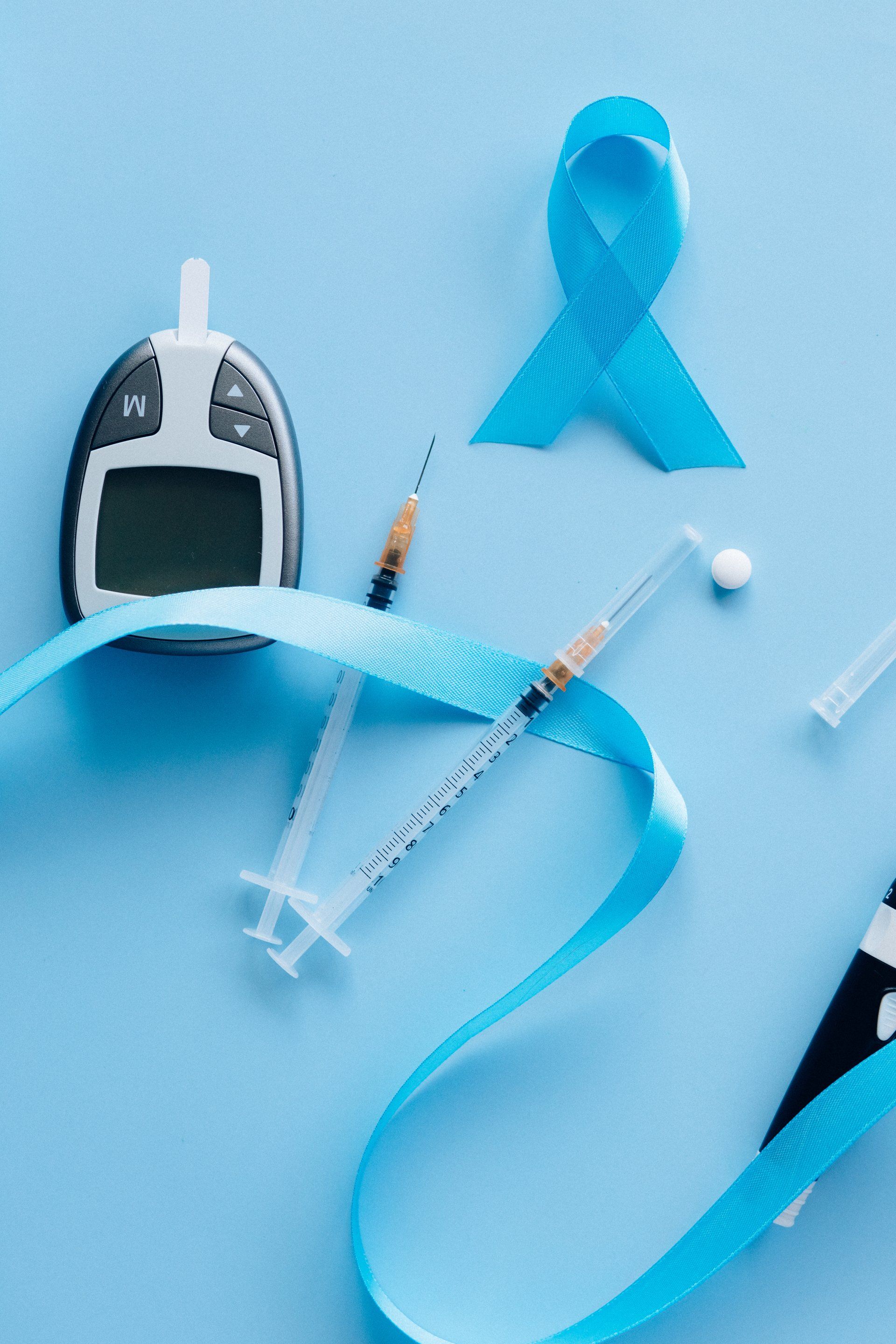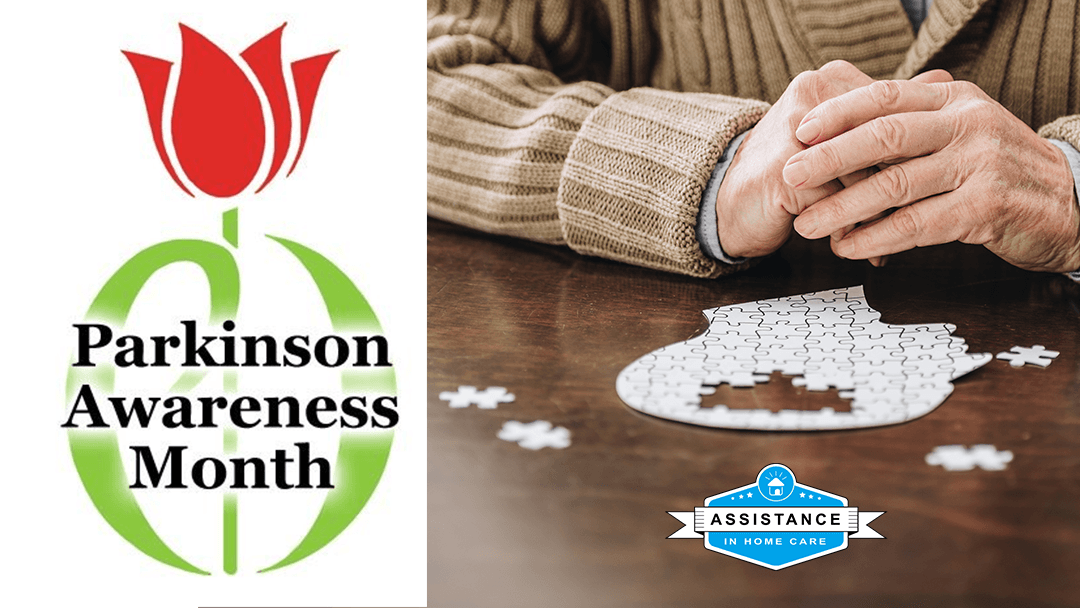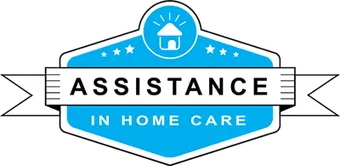Blog Layout
The Best of Home Care Top 100!
February 7, 2023
We are so proud of this accomplishment!
This year we are number 37 out of 100 in the nation!
We moved up from 52. We are also 1 of 3 from the entire state of California.
This is a huge accomplishment as an independent owner, and we couldn't be more proud of this accomplishment. It has always been our top priority to provide the most diligent and thorough care experience.
If you are looking for amazing In Home Care, reach out to us today.

By Matthew Streit
•
January 3, 2025
In a world where quality care and compassion define success, Assistance In Home Care has proven its dedication yet again. We have been awarded the prestigious Caring Star for 2025, marking the 8th consecutive year achieving this milestone. This recognition isn’t just a testament to our consistent service excellence—it’s a celebration of the unwavering trust and satisfaction of the families we serve. What Is the Caring Star Award? The Caring Star Award, given by Caring.com, honors home care agencies that receive high ratings and positive reviews from clients and their families. It’s not just about recognition; it’s a seal of quality that reassures families their loved ones are in capable hands. Winning the award for eight straight years places Assistance In Home Care in an elite category of home care providers nationwide. What Makes This Award So Significant? Being a Caring Star means more than just providing services; it’s about creating meaningful connections, delivering compassionate care, and exceeding expectations. Achieving this accolade for eight consecutive years speaks to several key aspects of Assistance In Home Care’s operations: Consistent Client Satisfaction: A legacy of positive feedback from clients highlights a level of care that remains unwavering over time. Excellence in Staff Training and Support: Happy clients are often a reflection of motivated, well-trained caregivers. Assistance In Home Care invests in its team, ensuring they are empowered to deliver top-notch care. Commitment to Continuous Improvement: Every year brings new challenges, but the agency’s ability to adapt and evolve ensures ongoing trust from families. What This Means for Families For families searching for a reliable home care provider, this accolade offers peace of mind. It’s a guarantee that Assistance In Home Care adheres to the highest standards in providing compassionate, person-centered care. A Vision for the Future Winning the Caring Star for 2025 is more than just a recognition of past achievements; it’s a commitment to the future. Assistance In Home Care aims to continue raising the bar in home care, ensuring that every client feels valued, respected, and cared for. This eight-year streak is a foundation upon which we plan to build even greater successes. Join the Celebration To everyone who has supported Assistance In Home Care—clients, families, caregivers, and the community—this achievement is yours too. Thank you for your trust and partnership in making a difference in so many lives. Here’s to celebrating the past and looking forward to an even brighter future!

September 11, 2023
Last weekend, Assistance in Home Care had the honor of participating in Super Senior Saturday, a vital resource fair for seniors. This event is a beacon of support, providing seniors with a wide range of information on topics like insurance, home care, living trusts, durable medical equipment, and veteran benefits. In this blog post, we'll share our experience and the impact we had on over 100 attendees. Our Participation At Super Senior Saturday, our team engaged with more than 100 seniors, offering personalized advice and information. We brought along informative materials and even organized a door prize giveaway to make the event more enjoyable and memorable. A Strong Community Gathering With over 1,000 seniors in attendance, Super Senior Saturday showcased the strength and unity of our senior community. It's heartwarming to witness seniors coming together to seek guidance and support. Closing Thoughts Participating in Super Senior Saturday reinforced our commitment to assisting seniors in every way possible. If you or a loved one needs help with home care or have questions about insurance, living trusts, or other senior-related matters, reach out to us. We're here to support seniors throughout their golden years, long after Super Senior Saturday has ended. Together, we can continue making these years truly golden for our beloved seniors.

November 18, 2022
November is American Diabetes Month! This month provides an opportunity to increase awareness about diabetes and its effects on the lives of patients and their families. According to the Centers for Disease Control and Prevention (CDC) , diabetes is a chronic condition that affects about 37.3 million people in the United States. Of these, 8.5 million are undiagnosed. Diabetes can lead to serious health complications including heart disease, stroke, kidney disease, blindness, and lower-extremity amputations. During American Diabetes Month , healthcare providers across the country are raising awareness about diabetes and its complications, as well as ways to prevent or manage the condition. What is Diabetes? Diabetes is a chronic condition that affects the way your body metabolizes sugar. There are three main types of diabetes: type 1, type 2, and gestational diabetes. Type 1 diabetes is when your body does not produce insulin. Type 2 diabetes is when your body does not use insulin properly. Gestational diabetes occurs in pregnant women and usually goes away after the baby is born. No matter what type of diabetes you have, it can lead to serious health complications such as heart disease, stroke, kidney disease, blindness, and amputation. Here are some things you can do this month to stay informed and healthy: 1. Get screened for diabetes. If you have risk factors for diabetes, such as being overweight or having a family history of the disease, talk to your doctor about getting screened. Screening tests can help you find out if you have diabetes so that you can start treatment early and avoid complications. 2. Know your numbers. If you have diabetes, it’s important to keep track of your blood sugar levels. Ask your doctor what your target blood sugar levels should be and how often you should check them. Then, take steps to reach and maintain those levels by following your treatment plan. 3. Make healthy food choices. Eating healthy foods helps you control your blood sugar levels and manage your weight. Talk to a registered dietitian or certified diabetes educator about meal planning that’s right for you. They can help you create a balanced meal plan that fits your lifestyle and meets your health goals. 4. Be active every day. Physical activity can help you control your blood sugar levels, boost your energy levels, and improve your overall health. Talk to your doctor about what types and amounts of physical activity are safe for you. Then, get moving! Even a little bit of activity is better than none at all. 5. Take care of your feet. Diabetes can cause nerve damage and poor blood flow, which increases your risk for foot problems. Check your feet every day for cuts, sores, redness, swelling, blisters, or any other changes. If you have any foot problems, see a podiatrist right away. 6 . Quit smoking. Smoking raises your risk for heart disease, stroke, lung cancer, and many other health problems. If you smoke, now is the time to quit. Talk to your doctor about ways to help you quit smoking for good. 7 . Control your cholesterol and blood pressure. High cholesterol and high blood pressure can damage your heart and blood vessels. This damage raises your risk for heart attack, stroke, kidney disease, and other problems. Work with your doctor to keep these numbers under control through lifestyle changes and medication if needed. 8 . Protect yourself from infections. People with diabetes are more likely than others to get certain infections, such as pneumonia or influenza. To help protect yourself : -Get a flu vaccine every year -Wash your hands often with soap and water -Avoid close contact with people who are sick The Future of Diabetes This month provides an opportunity for patients and their families to learn more about the condition and how it affects their lives. Healthcare providers across the country are also raising awareness about diabetes this month in order to promote early diagnosis and treatment of the condition before serious complications develop. You can play a role in promoting awareness by getting screened for diabetes, knowing your numbers if you have been diagnosed, making healthy food choices, being active every day, taking care of your feet, quitting smoking if you smoke tobacco products, controlling cholesterol and blood pressure levels, and protecting yourself from infection. By working together we can all help improve the lives of those affected by diabetes. Resources https://diabetes.org/ https://www.cdc.gov/diabetes/data/statistics-report/index.html Contact Assistance in Home Care Today You can be confident in the level of dedication and expertise of our team at Assistance in Home Care. Count on us to take care of your loved ones. Our experienced caregivers know how to care for individuals with these types of diagnoses. We know that not every individual is the same and requires different solutions. Contact us today to find out about how our team can help you and serve your various needs.

May 17, 2022
May allows the team at Assistance in Home Care to highlight one of the most wide-spread health conditions in the United States. Arthritis affects over 58 million men and women overall, about one in four adults on average. 1 The swelling and tenderness of one’s joint caused by arthritis is the most known affect of the disease. The main symptoms of arthritis are joint pain and stiffness, which worsens with age. 2 Assistance in Home Care would like to take this opportunity to spread awareness of the risks of arthritis and what you and your loved one can do to minimize the affects of the disease. General Risk Factors for Arthritis It’s important to understand that when it comes to risk factors, there are factors that you can and can not control. Your best chances of decreasing your risk of arthritis is by changing the risk factors that you can control. 1 Risk factors within your control include: · Overweight and Obesity: Those who are overweight or obese are more likely to get knee osteoarthritis than people who are not. Extra weight also puts more stress on the joints, such as the hips and knees. Maintain a healthy weight through healthy eating and daily physical activity. · Infection: Bacteria and viruses can infect joints and potentially cause some types of arthritis to form. Contact your doctor right away if your joints get swollen, warm, or red. · Joint Injuries: Joint injuries or overuse such as knee bending can damage a joint causing the development of osteoarthritis in that joint. Protect your joints by stretching or exercising that target weaker joints. · Knowing what factors are controllable can be the first steps towards a lower risk of arthritis. However, there are other factors that are beyond your control such as:1 · Age: Many types of arthritis- osteoarthritis, rheumatoid arthritis, and gout- in-crease in risk with age. · Gender: Women are more likely than men to develop rheumatoid arthritis, while most people who have gout are men. · Genetics and Inherited Traits: Some types of arthritis run in families; you may be more likely to develop arthritis if your family has a history of the disease. Daily Life with Arthritis Managing arthritis begins with the daily habits you choose to manage in order to stay healthy. The CDC Arthritis Program has developed five self-management strategies for managing arthritis and its symptoms for those of all ages. 1. Learn New Self-Management Skills: Learning strategies that could help bet-ter manage your arthritis can give you more control over your health. The CDC has a list of CDC-recognized self-management education programs at the link below. 2. Be Active: Daily physical activity can reduce pain, improve function, mood, and quality of life for older adults with arthritis. 3. Talk to Your Doctor: Talk to your doctor if you or a loved one notice joint pain and other arthritis symptoms. Getting an accurate diagnosis makes it so you or a loved one get the treatment you need. 4. Manage Your Weight: We’ve touched this before, but low-impact physical ac-tivity and dietary changes can help manage your weight! 5. Protect Your Joints: As one gets older, you must become more mindful of the stress you put onto your joints as joint injuries may worsen with arthritis. Low-intensity activities such as walking, bicycling, and swimming are easy on the joints as well have a low risk of injury. Treating arthritis should be focused on controlling pain, minimizing joint damage, and improving physical function and your quality of life. The caregivers at Assistance in Home Care excel in chronic care with individuals living with conditions such as arthritis. If you or a loved one need assistance in adjusting to daily life with arthritis or another chronic condition, our office is a call away. The adjustment from a life without arthritis to a lifestyle with the disease can be overwhelming and challenging for you and your loved ones. It’s our job at Assistance in Home Care to ensure any major lifestyle transition is as seamless as possible. Resources 1. CDC: https://www.cdc.gov/arthritis/communications/features/arthritis-aware-ness.html 2. Arthritis Foundation: http://blog.arthritis.org/news/arthritis-awareness-month/ 3. Mayo Clinic: https://www.mayoclinic.org/diseases-conditions/arthritis/symp-toms-causes/syc-20350772 4. Arthritis Society: https://arthritis.ca/about-arthritis/arthritis-risk-factors

April 5, 2022
Parkinson’s disease affects nearly 1 million people in the United States for those who are 60 years or older.1 The cause of the disease is still largely unknown as symptoms develop slowly over years, and although Parkinson’s isn’t fatal, the complications the dis-ease can create may become serious. Assistance in Home Care has compiled a list of early symptoms of the disease as well as tips for living with Parkinson’s to ensure that whether it’s you or a loved one, you have the knowledge to take the best steps towards your health. Early Signs of Parkinson’s Disease The first step to living comfortably with Parkinson’s disease is to understand the dis-ease and its progression. People with PD don’t start experiencing noticeable symptoms until later due to the number of neurons that have already been damaged or impaired.2 For instance, your arms may not swing when you walk, your speech may become soft or slurred, or your face may show little to no expression. Additional symptoms may also include:2 1. Tremor in fingers, thumb, hands, or chin 2. Small Handwriting 3. Loss of Smell 4. Trouble Sleeping 5. Constipation 6. Dizziness or Fainting 7. Stooping or Hunching Over It is recommended that you see your doctor if you notice any of these symptoms as your health care provider will be able to properly diagnose your condition and also rule out other causes for your symptoms. Fighting Parkinson’s One Daily Routine at a Time No doubt your life will change once you’re diagnosed with PD, however you’d be surprised what a healthy lifestyle can do to improve your quality of life and manage symp-toms. At the end of the day, it’ll be your attitude that will be your driving force towards a better daily life. Parkinson’s News Today has organized a list of helpful tips that you or a loved one may find useful.3 · Exercise: Daily exercise may have the greatest impact on the progression of the disease. Simple activities and one-minute meditations are a great way to ease yourself into the habit. Remember, it’s important to choose something that compliments your fitness level. Try exercising with friends, family, or other people with Parkinson’s. It keeps everyone accountable and pushes you to stick with the new routines! · Healthy Eating: Who knew staying hydrated and maintaining a well-balanced diet was the secret? Although it may be challenging to get into the routine of eating healthy, remind yourself that it’s a marathon not a race. First, start with simple recipes that only contain a few ingredients such as precut meats and vegetables. Then, when you feel more confident, you can start trying new things and mixing them up! Smoothies for instance can make for a quick healthy snack at any time of the day. Again, keep it simple and find the right recipes and routines that fit your lifestyle. Comfortable Living with Parkinson’s Although there is no standard cure for Parkinson’s Disease, we recommend talking with your doctor or health care provider to see what treatment is right for you. Treatments may include medications or surgical therapy in order to manage symptoms of PD. Under-standing your medication and sticking to a set schedule can make the task of tracking your medication less challenging. Remember that Assistance in Home Care’s mission is to provide quality managed care to our clients within the comfort of their own homes. This includes the transition from one lifestyle to the next. Assistance in Home Care provides Companion Care where our team creates a personalized care plan for you or a loved one. These customized plans are designed to promote your physical and emotional well-being in order to empower you to live every day to the fullest. Resources 1. ParkinsonsDisease.net: https://parkinsonsdisease.net/elderly-population 2. Parkinson’s Foundation: https://www.parkinson.org/understanding-parkin-sons/what-is-parkinsons 3. Parkinson’s News Today: https://parkinsonsnew-stoday.com/2022/01/06/leading-healthy-lifestyle-with-parkinsons-2022/

March 15, 2022
Part of the struggle in making that change towards a more nutrient rich diet is figuring out what to get when you walk down the grocery aisle. The rest is trying to cook up a proper meal for you and your family Luckily, Assistance in Home Care is here to make that process less grueling with a few recommendations on what ingredients you should look as well as a few meals you can make in the kitchen. Nutrition 101 If you’ve been following our previous blog posts, you already know that as we age, our metabolism begins to slow down. The choices we make in the grocery aisle become more crucial Assistance in Home Care wants the best for you and your loved ones, so here are a few reminders to be mindful of on your next grocery trip:1 · Consume More Liquids: Water, Fat Free Milk, and 100% Juice are healthy alternatives to carbonated and sugary drinks that will keep you hydrated throughout the day. · Calcium for Bone Health: Maintaining bone health as you age relies on a healthy calcium intake to prevent osteoporosis and bone fractures. Dairy is essential when meeting those needs! Milk, yogurt, cheese, and non dairy sources such as tofu and broccoli should also be added to your shopping list. · Be Smart with Your Carbs: Choosing w hole grains over processed white flour provides more nutrients and fiber while cutting down on sugars and refined carbs. As we age our senses begin to weaken, but that doesn’t stop us from wanting to taste delicious food.2 However you need to be careful Loss of taste often leads to many elderly people consuming more sugar and refined carbs than they’re aware of. Eating Well on a Budget Eating healthier doesn’t necessarily have to mean breaking the bank. Paying for organic food hasn’t always been easy on the wallet but there are ways to save money and eat healthy. 1. Less Take Out: Even if you’re not buying healthier foods, resisting your fast food craving saves your wallet and can force you to get creative with your homecooked meals. 2. Search Out Farmers’ Markets: Weekly farmers’ markets are a great way of getting fresh food directly. Plus, you’d be supporting your local community! 3. Meal Prep: Cooking a large meal at the beginning of the week so you don’t have to worry about food when you ’re not in the mood to cook. It also helps to have a family member or a caregiver to help you. Buying the ingredients is half the battle Here are a few easy recipes to add to your cookbook to get you started.3 1. Chicken Cutlets with Sun Dried Tomato Cream Sauce: Only 324 calories per serving and a great source of protein, this healthy recipe seals the deal with the sun dried tomato sauce! 2. Spinach Mushroom Quiche: For the vegetarians, or if you’re looking for a simple recipe, this is as easy as it gets. T his Quiche recipe can be enjoyed for breakfast, brunch, or lunch. 3. Cinnamon Roll Overnight Oats: A no cook breakfast in minutes and perfect for the grab and go mornings. Each recipe is available at the EatingWell link in the References section below Nutritional eating doesn’t have to be vegetables and water all day. As long as you’re being cautious of the foods you’re eating, you can take steps towards a healthier lifestyle and still enjoy what you eat! A Healthier Change for a Happier You Making the first steps towards a healthier lifestyle is great, however a sudden change in one’s daily routine can quickly become overwhelming, stressful, and disheartening. Assistance in Home Care offers personalized 3 hour to 24-hour in-home care to help you or a loved one ease their way into a stable, independent life. We care for individuals with all types of care needs. Our caregivers are trained in assisting with meal preparation, medication assistance, or personal hygiene care so that you or a loved one can remain in-dependent in the comfort of your home. Resources 1. Help Guide: https://www.helpguide.org/articles/healthy eating/eating-well-as-you-age.htm 2. National Institute on Aging: https://www.nia.nih.gov/health/smell and taste 3. Eating Well: https://www.eatingwell.com/recipes/18053/lifestyle diets/healthy aging/
BROWSE OUR SITE
CONTACT INFORMATION
Phone:
(844) 490-9755
(310) 698-8751
Email:
info@assistanceihc.com
Address:
12832 Valley View St, Suite 211 Garden Grove, CA 92845
2447 Pacific Coast Highway, 2nd Floor
Hermosa Beach, CA 90254
Content, including images, displayed on this website is protected by copyright laws. Downloading, republication, retransmission or reproduction of content on this website is strictly prohibited. Terms of Use
| Privacy Policy




